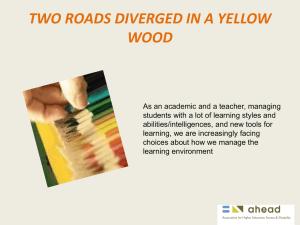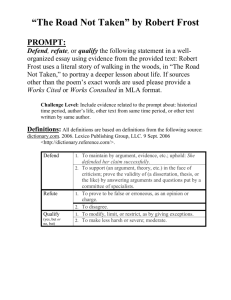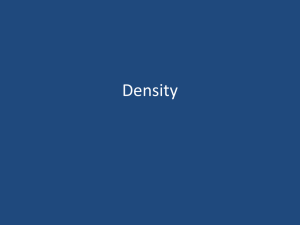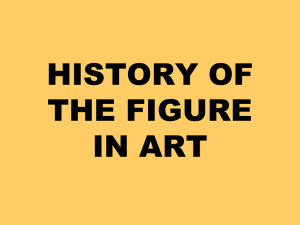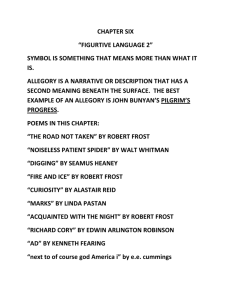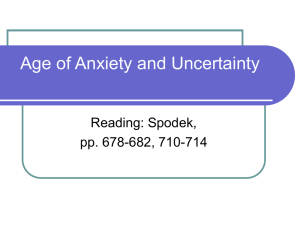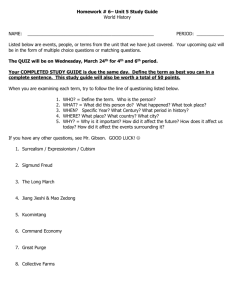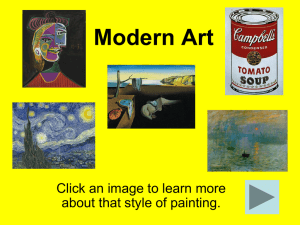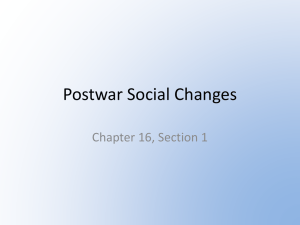Modernist Poets PPT
advertisement
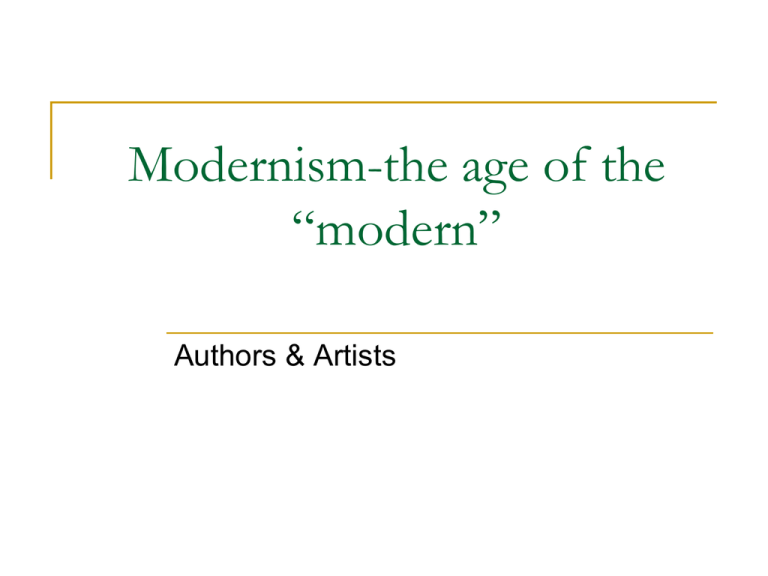
Modernism-the age of the “modern” Authors & Artists Ezra Pound- “Father of Modern Poetry” was well-known for his critique of American society Began tradition of “experimental poetry” driving force behind imagism Outraged by loss of life in WWI Supported Mussolini in WWII Strove to “make it new” Institutionalized for 12 years. T.S. Eliot-awarded the Nobel Prize in Literature in 1948; friends with Pound Most difficult poet of his era. Complexity of life captured in poems. Influenced by symbolism. Critiqued spiritual emptiness of modern era. William Carlos Williams Friends with Pound. Poetry should be stripped to bare essentials. Objectivism – depict things in unbiased ways Common place objects/things Carl Sandburg Unconventional education. Worked in factories Free verse, everyday speech Portrayed working class. William Faulkner Mediocre student; did poorly in English. Wrote about the American South. Boldly used stream of consciousness. Awarded Nobel Prize for Literature 1949. Ernest Hemingway Modern hero: disillusionment with conventions of optimistic, patriotic society; belief that essence of life is violence His life mirrored in stories. Committed suicide in 1961. e. e. cummings Unconventional use of grammar. Broke every rule of proper writing. Studied in France; developed a great interest in modern art (impressionism, cubism) and began painting. Robert Frost Became famous in France, where he studied with Pound. Wrote his poems in traditional rhymes and metrical forms. Like his romantic predecessors, Frost often wrote about individualism and working out one’s relationships with God and existence. “The death of Robert Frost leaves a vacancy in the American spirit…” -John F. Kennedy F. Scott Fitzgerald-considered a Modernist writer How does The Great Gatsby fit into Modernism? Fitzgerald was good friends with Hemingway. Themes in Early Modern Art 1. Uncertainty/insecurity. 2. Disillusionment. 3. The subconscious. 4. Overt sexuality. 5. Violence & savagery. Claude Monet~Impressionism Includes visible brush strokes, open composition, emphasis on light in its changing qualities, ordinary subject matter, the inclusion of movement as a crucial element of human perception and experience, and unusual visual angles. Not blended; color more important than perfect lines. Poppies Edvard Munch -Expressionism Tendency of an artist to distort reality for an emotional effect— “being alive.” Using bright colors to express a particular emotion. The Scream Henri Matisse~Fauvism Fauvism emphasized intense color, bold lines, and vigorous brush strokes. Color for color’s sake. Translated feelings in an almost clumsy way. The Moroccans Pablo Picasso~Cubism Objects are broken up, analyzed, and reassembled in an abstracted form Subject is depicted from a multitude of viewpoints. Art didn’t have to resemble nature. Three Musicians Pablo Picasso~ Guernica What do you think of cubism? Salvador Dali~Surrealism Stresses the subconscious or non-rational significance of imagery. Confusing and startling images, like those in dreams. Often features unexpected juxtapositions (things placed close together for contrasting effect). What are some possible meanings of this painting? The Persistence of Memory Salvador Dali What does this mean? Renee Magritte~Surrealism The title says, “This is not a pipe” The Son of Man Modern Poets Assignments Ezra Pound Pg. 576-577 William Carlos Williams pg. 593-595 ee Cummings pg. 603 Read a poem from each of these authors and complete the following for each: -List modern elements. -Brief summary and analysis of each one. -Create a five line found poem for each. And now… For our first modern poem! “The Road Not Taken” - Robert Frost Two roads diverged in a yellow wood, And sorry I could not travel both And be one traveler, long I stood And looked down one as far as I could To where it bent in the undergrowth; Then took the other, as just as fair, And having perhaps the better claim, Because it was grassy and wanted wear; Though as for that the passing there Had worn them really about the same, And both that morning equally lay In leaves no step had trodden black. Oh, I kept the first for another day! Yet knowing how way leads on to way, I doubted if I should ever come back. I shall be telling this with a sigh Somewhere ages and ages hence: Two roads diverged in a wood, and II took the one less traveled by, And that has made all the difference.

